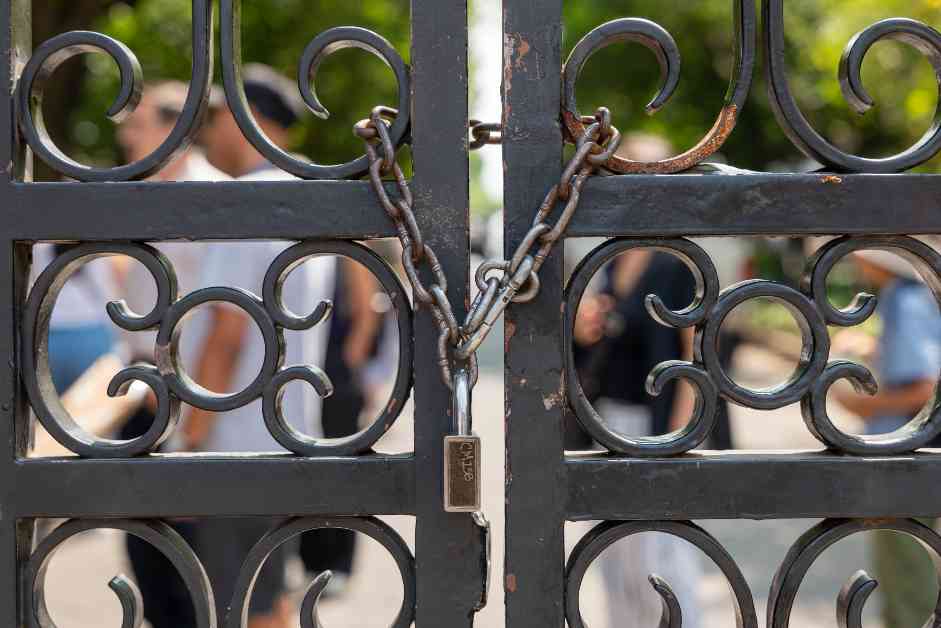Colleges Struggle to Balance Free Speech: Navigating Campus Expression in a Polarized Climate
As students return to college campuses amid ongoing demonstrations surrounding the Israel-Hamas conflict, the debate over free speech rights versus creating a safe environment is at the forefront. The challenge lies in finding a balance between allowing freedom of expression and ensuring a campus free from hostility and intimidation. The implementation of new policies by colleges across the country reflects the growing tension surrounding campus protests and demonstrations.
The Issue of Campus Protest Regulations
Many colleges have recently revised their policies on student protests, with some institutions adopting a more restrictive approach. These new guidelines often require students to obtain prior approval for outdoor events or demonstrations, regulate the display of posters and materials on campus, and restrict the locations and use of amplified sound for protests. The aim is to prevent the formation of encampments, such as those seen in past protests, which can disrupt campus activities and pose safety concerns.
However, critics argue that these restrictions may stifle students’ First Amendment rights and discourage them from engaging in peaceful protests. Risa Lieberwitz, general counsel at the American Association of University Professors, expressed concern that the new policies could lead to surveillance of students with minority viewpoints and inhibit spontaneous assembly in response to urgent events. The fear is that these limitations could be used to punish students who participate in protests, undermining the fundamental principles of academic freedom and free speech on college campuses.
Challenges Faced by College Leaders
The handling of campus protests has put college leaders under intense scrutiny, as they navigate competing interests from students, faculty, donors, and lawmakers. The pressure to address protests effectively while upholding academic freedom has led to resignations of several Ivy League presidents, signaling the complexity of managing campus expression in today’s polarized climate. Michael B. Poliakoff, president of the American Council of Trustees and Alumni, emphasized the need for courage and proactive measures to prevent disruptive protests and safeguard the integrity of the university community.
Finding a Path Forward
As colleges grapple with the challenges of regulating campus expression, there is a growing consensus on the importance of educating students on how to exercise their free speech rights responsibly. Lindsie Rank, director of campus rights advocacy at the Foundation for Individual Rights and Expression (FIRE), emphasized the need for constructive dialogue and peaceful debates without resorting to violence or vandalism. By promoting a culture of respectful discourse and understanding, colleges can create a conducive environment for diverse viewpoints to be heard without compromising campus safety.
The Impact of Recent Protests on Campus Communities
The wave of protests that swept college campuses in recent years has not been without consequences. Many students involved in demonstrations faced disciplinary actions, suspension, or expulsion, while others experienced harassment or negative encounters on campus. The clash between opposing viewpoints has highlighted the need for colleges to address underlying tensions and promote dialogue that respects the rights and perspectives of all members of the community.
Navigating the Changing Landscape of Higher Education
Amid the challenges of regulating campus expression, colleges are also facing broader shifts in the higher education landscape. The increase in college applicants, particularly from underrepresented groups and lower-income families, reflects a growing aspiration for higher education opportunities. However, the decline in the number of colleges and universities raises concerns about the financial sustainability of institutions and the impact on students and faculty members affected by closures.
Moving Forward: Balancing Rights and Responsibilities
As colleges grapple with the complexities of regulating campus expression, finding a balance between upholding free speech rights and ensuring a safe and inclusive environment remains a pressing issue. By fostering a culture of respect, dialogue, and mutual understanding, colleges can create a space where diverse perspectives can coexist and thrive. The ongoing dialogue on campus expression reflects the broader societal challenges facing higher education and underscores the importance of upholding core values of academic freedom, diversity, and inclusion in the pursuit of knowledge and understanding.

